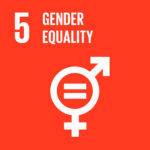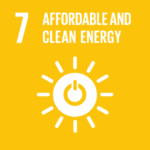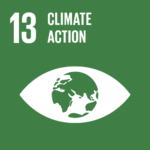ANGOVO MAHARITRA
IMPROVED COOKSTOVES
Angovo Maharitra - Improved Cookstoves
Angovo Maharitra (malgasy for “sustainable energy”) aims to address the adverse effects of firewood consumption on the environment and health in Madagascar. Through the distribution of energy-efficient cookstoves in eight communities in southern Madagascar, we strive to mitigate the impacts of open fires systems and promote sustainable cooking practices contributing to tackle climate change, deforestation, and health hazards.
The improved cookstoves are designed to optimize fuel efficiency, reduce smoke emissions, and improve cooking performance, leading to a significant reduction of over 44,000 tons of carbon dioxide emissions per year across benefiting more than 15,439 households.
Type
Community based project – Energy Demand
Standard
VCS – Verified Carbon Standard
SD VISta – Sustainable Development Verified Impact Standard
Auditing
AENOR
Location
Tulear, Madagascar
Project Proponent
CARBON CREDITS CONSULTING S.R.L.
Developer
Madaprojects Società Benefit
VCS Registry ID
3935
Baseline Scenario
In Madagascar, the situation regarding the availability of clean fuel technologies for cooking is very critical. The lack of viable alternatives leads the entire population to depend exclusively on the use of firewood, despite the resulting environmental and health damage.
On-site analyses conducted in partnership with IEST – University of Tulear showed that 85 percent of the Malagasy population lives in rural areas. Additionally, 97 percent of these households rely on firewood and charcoal as their primary source of energy.
The situation is even more serious considering that most of the energy used by Malagasy households comes from forest-related sources, either through wood harvested from the forest or purchased.
The Angovo Maharitra Cookstoves project in Madagascar aims to provide a more sustainable and secure solution for the energy needs of Malagasy households. The goal is to provide low-impact alternatives for cooking in order to improve people’s quality of life and protect the environment around the villages.

1
Baseline scenario
97% of households living in rural areas use firewood and charcoal as their main source of energy, with serious health and environmental impacts

2
Project location
The project activity is implemented in several villages and communities in the Atsimo-Andrefana region in Tulear’s district

3
Solutions
The project aims to give rural communities in Madagascar access to improved cookstoves. By mid-2023, 15,439 households are expected to have access to these cookstoves

4
Outcomes
Reducing greenhouse gas emissions through the production of efficient cookstoves while reducing the workload to collect wood and creating new job opportunities for the local community
Project Locations
Outcomes
Environmental
The Angovo Maharitra project will lead to a number of environmental benefits that have a significant impact on the well-being of the ecosystem and the population.
Reducing the use of nonrenewable biomass for cooking will lead to a decrease in greenhouse gas emissions. This, in turn, will contribute to the natural recovery of forests and/or reforestation, creating a healthier ecological balance.
Reducing wood smoke will reduce indoor air pollution and associated health disorders. This is a benefit not only to the environment, but also to the health of people living in these areas.
The improved cookstoves used in the project are environmentally friendly in that they help reduce CO₂ emissions compared to traditional cooking technologies.
Social
The project aims to reduce hardship in the lives of local communities in Madagascar through the introduction of energy-efficient cookststoves.
Communities are at the center of the project, which aims to actively involve them in project implementation. The dissemination of improved stoves requires a production and distribution chain that generates local employment. This chain involves various stages from production to assembly, distribution, maintenance, and sales.
These stoves, compared to traditional cooking methods, will require less firewood and less time to devote, allowing people to engage in other income-generating productive activities.
The role of women
In addition, women are the main target user group and are able to raise awareness among their peers and community members about the dangers of using traditional cooking methods and air pollution. In this way, the project aims to achieve not only a concrete improvement in living conditions, but also greater awareness and sensitization on these important issues.
Economic
The manufacture, operation, repair, and maintenance of high-efficiency stoves represent an important opportunity for job creation among the local population in Madagascar. The production of these stoves requires the processing of materials such as iron or ceramics. While the assembly and marketing of these products require local labor, thus supporting the local economy.
In addition, due to their increased efficiency, the costs incurred in the purchase of firewood will be reduced, leading to a reduced need for this fuel, which will result in significant savings for households.
The use of these improved stoves could also help reduce greenhouse gas emissions and reduce the amount of fuel from nonrenewable sources used for cooking. These improvements could generate carbon credits that could be used to finance other environmental projects.

Through the distribution of improved cookstoves, the project will contribute to the achievement of 9 Sustainable Development Goals outlined in Agenda 2030:
1. No Poverty

The project aims to provide modern energy sources to rural communities in Madagascar through improved cookstoves. These cookstoves will replace traditional cooking methods such as three-stone fires (Fatapera). They are expected to lead to significant savings in time and money, which can be used for other needs such as education and health care.
2. Zero Hunger

Half of all malagasy children under age 5 suffer from chronic malnutrition, which is a serious public health problem. Shifting to clean cooking solutions can improve food security by reducing land degradation, freeing up time and money to grow more nutritious food, and improving nutrient retention in cooked foods. These stoves can save families money and improve their families’ food security.
3. Good Health and Well-Being

There is strong evidence linking the use of solid fuels to acute respiratory infections, lung cancer, as well as adverse outcomes during pregnancy. Globally, exposure to smoke from cooking fires causes about 3.2 million premature deaths per year and remains a leading cause of pollution-related illness and death in Africa. Replacing traditional cooking systems or open fires with well-designed stoves reduces exposure to particulate matter, carbon monoxide, and toxic elements. In addition, improved stoves also reduce accidental burns to women and children due to the enclosed combustion chamber and stable base.
4. Quality Education

Technical and field staff responsible for installing and maintaining the stoves will be trained in understanding the requirements of the monitoring system to ensure that the data recorded are complete and accurate, which would increase their employability and chances of obtaining long-term employment even after the end of the project. Field staff were also trained for the sales and distribution phase. In addition, the Angovo Maharitra stove cooks faster than traditional stoves and uses less fuel. This way children can spend more time on education/schooling instead of cooking.
5. Gender Equality

In Madagascar, it is women who are most responsible for cooking and acquiring fuel for cooking, spending up to 10 hours a week in harvesting and 4 hours a day in cooking with traditional stoves. This prevents them from performing higher value activities and perpetuates gender inequality and economic poverty. With access to modern energy, women could reduce their exposure to household pollution, cooking time, and trips to collect wood, freeing up time for productive and educational activities.
7. Affordable and Clean Energy

In Madagascar, 80% of the energy consumption comes from biomass, mainly firewood (68%) and charcoal (10%). This is especially true in rural areas where these sources are used for heating and cooking. The Angovo Maharitra cookstove is being introduced as a clean cooking technology in approximately 15,000 households in the Region of Atsimo Andrefana to address energy poverty and ensure sustainable energy security, resulting in a positive impact on the community.
8. Decent work and economic growth

The implementation of the improved cookstoves requires a production and supply chain that creates local employment opportunities in different stages of production. Specifically, this includes assembly, distribution, maintenance, and sales. Furthermore, the project is expected to have a positive impact on local employment and economic growth. For instance, a local production facility will be established in Ankoronga Angara village, which will employ about 40 people. Additionally, this will create an additional 60 jobs in sales, marketing, distribution, and monitoring.
13. Climate action

Domestic cooking is a significant contributor to global greenhouse gas emissions. However, the replacement of traditional cooking systems with more efficient stoves can reduce fuel consumption by 30-60%, resulting in a reduction of carbon dioxide and black carbon emissions. The project aims to replace inefficient stoves with improved ones in 15,439 households, resulting in reduced firewood consumption and decreased emissions of 44,683 tCO2 each year, totaling 312,781 tCO2 in the first 7-year period.
15. Life on Land

Moreover, between 1990 and 2010, Madagascar lost 8.3 percent of its forest cover, an average of 56,950 hectares per year. A study conducted between 2000 and 2015 revealed that 1.4 percent of natural forest disappeared between 2000-2005, 1.8 percent between 2005-2010, and 0.5 percent between 2010-2015. In addition, habitat loss is a major factor in the loss of wildlife species. To help preserve forests and biodiversity, the Angovo Maharitra stove project saves about 2,559 tons of charcoal per year, as charcoal production is a major driver of deforestation.



